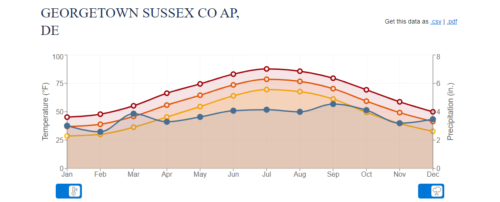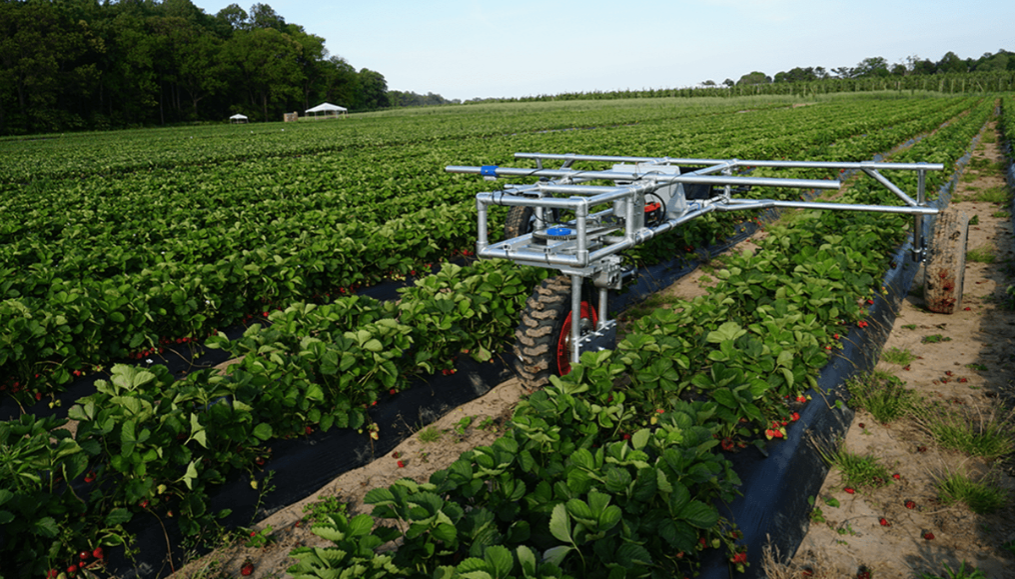Delaware is growing as an agtech state, and there is no agricultural issue that is more pressing than climate change. But what are the issues that ag-focused technologists should be thinking about?
Delaware Public Media’s Sophia Schmidt recently interviewed Emmalea Ernest and David Owens from the University of Delaware Cooperative Extension. The short (about 8 minutes) interview is worth a listen.
Also worth checking out: The National Oceanic and Atmospheric Administration’s (NOAA) 2020 U.S. Climate Normals Quick Access tool, which provides easy-to-navigate access to data from the most recent version of the U.S. Climate Normals, which includes 30 year averages of temperature, precipitation, and other climate variables measured at more than 15,000 U.S observation stations, including 19 in Delaware.
Using this data tool, you can explore temperature and precipitation Normals — the changing conditions considered normal at a given time — in Delaware (and other states).

The 2020 U.S. Climate Normals Quick Access tool (screenshot via NOAA)
The average temperature change over the last decade — about .5 to 1 degree Fahrenheit — may seem negligible, but it has literally changed growing seasons in Delaware, sometimes by weeks.
In theory, extended growing seasons mean more time to grow more produce to sell to more buyers, equaling more profits. In reality, it’s not that simple. High summer night temperatures may lead to altering, but not necessarily extending, a growing season to avoid the heat stress on plants in July and August. Warmer winters may mean an increase of pests, as some may not die odd seasonally due to the cold like they used to.
One Delaware agtech startup out of UD, TRIC Robotics, has been focused on pest control using UVC light. The company tested its robots at sites including Delaware’s Fifer Orchards through the COVID-19 pandemic, during which it won the Swim with Sharks competition and became one of eight startups selected for the VentureWell 2021 ASPIRE Cleantech investment-readiness program.
“Fall crops may have an extended season– cabbage, broccoli, cauliflower, brussels sprouts,” Earnest said in the DPM interview. “The extension on the front end in the spring might allow some things like tomatoes, peppers, watermelon and sweet corn to be be planted earlier. It creates opportunities, but it also produces uncertainty.”
Before you go...
Please consider supporting Technical.ly to keep our independent journalism strong. Unlike most business-focused media outlets, we don’t have a paywall. Instead, we count on your personal and organizational support.
Join our growing Slack community
Join 5,000 tech professionals and entrepreneurs in our community Slack today!

Entrepreneurship is changing, and so is the economic development behind it

Tech Hubs’ new $210M funding leaves Baltimore and Philly off the table

Here’s what to know before using AI to craft your brand’s social media posts


